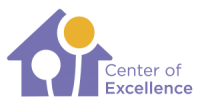Goals and Objectives
We will identify specific goals for individual children through observation and assessments and work on these, in the context of supporting the child’s overall development. However, these are some of the areas we will routinely support with children:
Physical development
Infants:
- Skills in lifting head
- Skills in sitting, rolling, pulling to stand, sit to stand
- Coordination of eyes, following moving objects with gaze
- Crawling, scooting
- Walking
- Grasping, picking up small objects
- Skills in hand-eye coordination
- Use of rhythmic movement
Toddlers/Preschool
- Skills in running, climbing
- Beginning balance in walking, jumping, hopping
- Use of some motor skills socially
- Use of rhythmic movement
- Coordination of physical skills in play
- Use of visually directed movement
- Beginning control of bladder and bowels
- Beginning use of pincer grasp effectively
- Use of whole hand muscles skillfully
- Beginning some small muscle eye-hand coordination
Preschool 2
- All of the above at more proficient level, plus beginning skipping, jumping, tumbling
- Increasing coordination and balance of arms, legs and entire body
- Managing toileting needs with increasing independence
- Increasing use of pincer grasp, ability to hold and manage writing/drawing tools
Kindergarten Prep/School Age
- All of the above with proficiency
- Increasing writing skills
Emotional development
Infants
- Sense of security
- Exploration of self
- Recognition of caregiver
- Cooing and babbling
- Display of feelings
- Response to names
- Acknowledgement of moods and preferences
- Imitation of adult dramatic play
- Early self-care
Toddlers/Preschool Prep
- Showing self-esteem
- Expresses physical affection to familiar caregivers
- Demonstrates being independent in self-help skills
- Initiates own activities
- Begins to demonstrate self-regulation skills
- Shows some flexibility in adapting to changes, difficulties, and disappointments
- Indicates some needs and desires in a sociable manner
- With adult support, begins to be able to make transitions during class
Preschoolers
- All of the above in increasing amounts plus:
- Knows self, is able to describe self
- Increasing mastery of self-regulation skills
- Demonstrates curiosity about new encounters and approaches
- Demonstrates ability to sit and participate in daily group time and other activity sessions
- Makes transitions from one activity to another with anticipation of coming change
Social Interaction:
Infants
- Smile in response to an Adult
- Making eye contact
- Respond positively to being held
- Recognition of primary caregiver
- Coo and babble when talked to
- Simple games (peek-a-boo)
- Encourage awareness of others
- Self-feeding skills
Toddlers/Preschool 1
- Forms attachment relationships to specific caregivers
- Makes some simple adaptations to group’s needs
- Shows beginning awareness of others’ feelings
- Occasionally notices others’ activity, may seek to play near others, makes eye contact or copies another’s activity
- Initiates separations from adults, yet seeks them out for sharing or assistance
- Exhibits some role-playing behaviors
Preschool 2:
- All the above at an increased level, plus:
- Demonstrates independence in self, play, and task-related needs
- Increasingly able to accept and cooperate with rules and requests
- Open to resolving conflict with support from adults, increasingly with less intervention
- Plays with peers with satisfaction and generally enjoys the peer group experience
Kindergarten Prep/ School Age:
- All of the above at an increased level, plus:
- Demonstrating social interactions at a higher level
Cognitive development:
Infant:
- Increased attention span
- Looking from one object to another
- Hold and manipulate objects
- Look towards the source of noise
- Taking turns with early cooing and babbling
- Looking for dropped or hidden objects
- Early memory development
- Early games
Discovery of consequences of own behavior manipulating objects - Early language skills
Toddler/Preschool 1
- Notices and begins to comment upon qualities experienced by the senses
- Shows beginning memory for past events
- Demonstrates some reasoning and thinking concerning cause-effect
- Performs simple matching tasks
- Shows beginning skills in working with part/whole materials
- Perceives and points out relationships between pictures and real objects
- Expresses some knowledge of self
- Knows some property labels such as color or shape names
- Has beginning counting skills and quantity concepts
- Receptive and expressive language vocabulary expansion
- Beginning to identify objects, people and pictures
- Correctly follows one-step directions
- Names body parts
- Experiments with language
- Enjoys language exchanges with others
- Asks simple questions
- Willingness to try creative expression materials
- Shows creative thinking in use of materials
Preschool 2:
- All of the above with increased comfort, regularity and detail, plus:
- Performs some matching, sorting, classifying and seriating operations using more attributes
- Anticipates or predicts consequences of events and activities
- Demonstrates increased planning and executing within the activity or product undertaken
- Relates to space/time sequences
- Expresses some reasoning and thinking of causes and effects in daily encounters
- Demonstrates interest in examining physical objects and noting their physical properties
- Is beginning to understand some time relationships
- Appears to understand features of stories by retelling them or commenting upon their content
- Demonstrates some interest in recognizing letters, own name and simple words of interest
- Plays with games and equipment requiring one-to0one correspondence of numbers and objects
- Understands simple measurement concepts, as in amounts
- Beginning to duplicate patterns of beads, tiles, etc. when these are part of a task
- Begins to represent real people, events and objects in artwork
- Creates some stories with dolls, buildings, blocks, vehicles, etc…
Kindergarten Prep and School Age:
- All of the above with increased comfort with and expanding knowledge in language and literacy development, basic math skills and social and motor skills.

